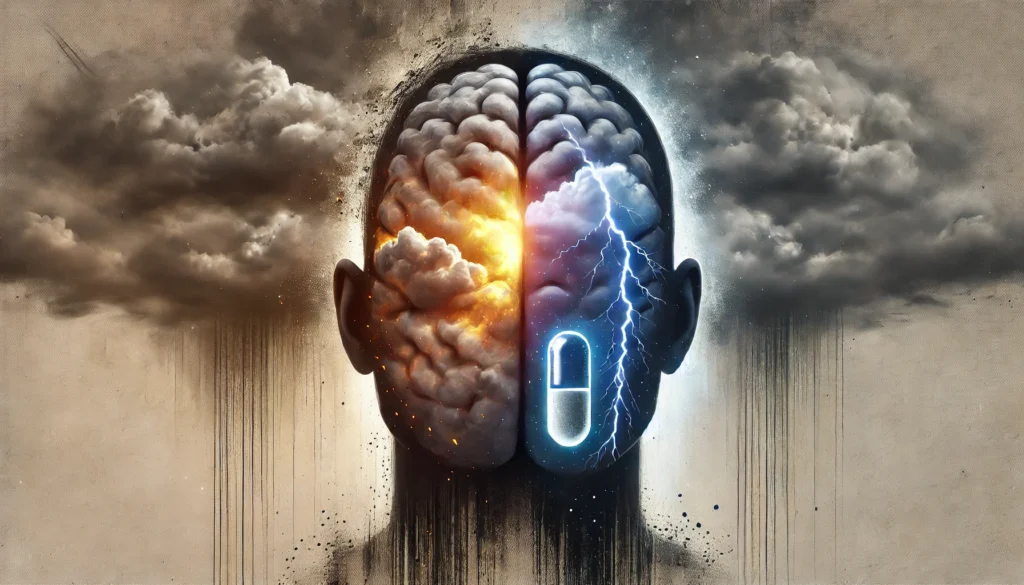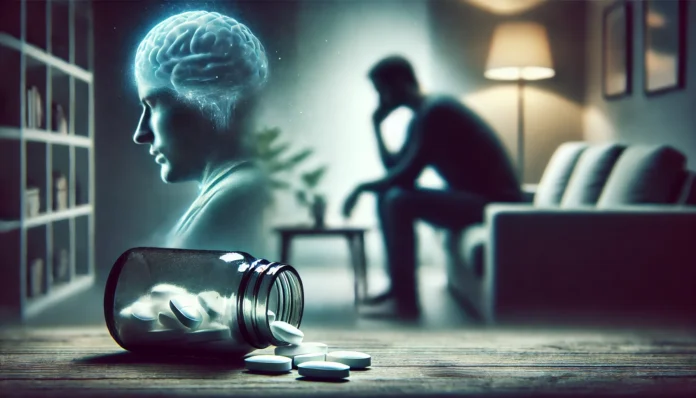Balancing the Promise and Peril: Key Considerations for Benzodiazepine Use
As the medical and mental health communities continue to assess the proper role of benzodiazepines in anxiety treatment, the conversation increasingly emphasizes nuance over absolutism. Rather than casting these medications as inherently good or bad, experts now stress the importance of individualized risk-benefit assessments. Benzodiazepines for anxiety can be lifesaving tools when used judiciously, offering immediate relief to those in acute distress. But they also require a high degree of clinical vigilance to prevent dependency, cognitive decline, and long-term psychological complications.
You may also like: Proven Relaxation Techniques for Stress and Anxiety: Evidence-Based Strategies to Calm Your Mind and Body
Crucially, appropriate prescribing begins with an understanding of a patient’s history, co-occurring conditions, and prior treatment experiences. Someone with a history of substance use disorder, for example, may be particularly vulnerable to the addictive properties of benzos for anxiety and might benefit from alternative treatments. Conversely, an individual experiencing overwhelming panic attacks with no history of medication misuse may find short-term benzodiazepine use to be an essential lifeline. Context is everything in psychiatric care, and benzodiazepines are no exception.
Incorporating routine follow-ups, gradual dose reduction plans, and integrative support strategies such as therapy and stress management techniques can mitigate many of the risks associated with benzodiazepine use. Equally important is continued clinician education to keep prescribing practices aligned with the most current evidence and guidelines. Medical schools, residency programs, and continuing education providers all have a role to play in ensuring that future and current healthcare providers are equipped to use these medications responsibly.
For patients, advocacy and self-education are equally vital. Individuals who are well-informed about both the benefits and drawbacks of benzodiazepines are more likely to advocate for themselves, ask the right questions, and actively participate in their treatment planning. Open dialogue and mutual trust between patients and providers create the foundation for safer and more effective anxiety management.
Understanding the Role of Benzodiazepines in Anxiety Treatment
In the complex and deeply personal experience of anxiety, the search for effective relief often leads patients and clinicians alike to consider pharmacological options. Among these, benzodiazepines have held a prominent position for decades. Commonly prescribed for acute anxiety episodes and panic disorders, these medications—such as diazepam (Valium), alprazolam (Xanax), and lorazepam (Ativan)—work by enhancing the effect of gamma-aminobutyric acid (GABA), a neurotransmitter that calms brain activity. The result is a fast-acting reduction in anxiety symptoms, which can be profoundly reassuring for individuals in distress.
The use of benzodiazepines for anxiety is not a new phenomenon. Since their introduction in the 1960s, these medications have become a cornerstone in the pharmacological management of anxiety disorders. Their rapid onset of action and effectiveness in reducing acute symptoms have made them a go-to option in emergency rooms, psychiatric practices, and general healthcare settings. Yet, the same characteristics that make benzos for anxiety appealing—namely their potency and speed—are also at the heart of ongoing debates about their long-term safety, dependency potential, and overall effectiveness.
Clinicians often face a dilemma when considering benzodiazepines for anxiety. On one hand, these drugs can offer near-immediate relief for patients facing debilitating panic or severe generalized anxiety. On the other, concerns about tolerance, withdrawal, and cognitive side effects temper their enthusiasm for long-term use. Understanding this balance is essential not only for medical professionals but also for patients seeking to make informed decisions about their mental health care.
How Benzodiazepines Work in the Brain
To fully appreciate the efficacy and risks associated with benzodiazepines, it is important to understand their mechanism of action. Benzodiazepines bind to specific sites on the GABA-A receptor in the central nervous system. By doing so, they amplify the inhibitory effect of GABA, leading to sedation, muscle relaxation, and a general decrease in neural excitability. This calming effect is particularly beneficial in anxiety disorders, where an overactive brain often fuels a cycle of fear, worry, and physical tension.
The rapid relief provided by benzos for anxiety is often unmatched by other medications. While selective serotonin reuptake inhibitors (SSRIs) and serotonin-norepinephrine reuptake inhibitors (SNRIs) are commonly used to manage chronic anxiety, these medications typically take several weeks to reach full efficacy. In contrast, benzodiazepines can reduce symptoms within minutes to hours, making them ideal for short-term interventions or acute exacerbations of anxiety.
However, this rapid action is a double-edged sword. The same neurochemical changes that reduce anxiety can also impair memory formation, slow cognitive processing, and contribute to emotional blunting. Moreover, the body can quickly develop a tolerance to benzodiazepines, requiring higher doses to achieve the same effect. This tolerance, combined with the risk of physical and psychological dependence, has raised important questions about the long-term role of benzodiazepines in treating anxiety.
Clinical Indications for Benzodiazepines in Anxiety Disorders
Despite concerns, benzodiazepines remain a valuable tool in specific clinical contexts. They are particularly effective in managing short-term or situational anxiety, such as fear of flying, preoperative jitters, or the initial phase of a panic attack. In these situations, the immediate calming effect of benzodiazepines can prevent the escalation of anxiety into a full-blown crisis, allowing individuals to function more normally in high-stress environments.
Another common use is in the initial stages of anxiety treatment when longer-term medications like SSRIs are just being introduced. During this adjustment period, patients may experience heightened anxiety or insomnia, and benzodiazepines can serve as a temporary bridge to ease this transition. Some clinicians also use them in combination with psychotherapy, particularly for individuals who are too anxious to engage fully in cognitive behavioral therapy or exposure exercises.
Emergency rooms and inpatient psychiatric units also rely on benzodiazepines to manage acute agitation, panic, or severe anxiety that threatens patient safety. In these high-intensity settings, the priority is often immediate symptom control, and benzodiazepines provide a fast and reliable solution. However, the key to their responsible use lies in strict duration limits, close monitoring, and a well-structured tapering plan if continued use becomes necessary.
Risks Associated with Long-Term Benzodiazepine Use
While the benefits of benzodiazepines for short-term anxiety relief are well documented, their long-term use is fraught with complications. Prolonged exposure to these medications can lead to physiological tolerance, requiring escalating doses to maintain the same level of symptom control. This not only increases the risk of overdose but also exacerbates dependence.
Physical dependence on benzodiazepines can develop within a matter of weeks, especially at higher doses. Once dependence has set in, abrupt discontinuation can trigger withdrawal symptoms that range from insomnia and irritability to severe panic, hallucinations, and even seizures. Tapering off benzodiazepines must therefore be done slowly and under medical supervision, often over several months.
Beyond dependence, long-term benzodiazepine use is associated with cognitive impairments, including memory deficits, slowed reaction times, and difficulties with concentration. These effects can persist even after the drug is discontinued, raising concerns about potential neurotoxicity. For older adults, the risks are particularly pronounced. Benzodiazepines have been linked to an increased risk of falls, fractures, and even dementia in elderly populations.
Moreover, chronic benzodiazepine use can paradoxically worsen anxiety over time. This phenomenon, known as rebound anxiety, occurs when the calming effect of the drug wears off and the brain—having adapted to the presence of the medication—overreacts. As a result, individuals may find themselves trapped in a cycle of escalating anxiety and increasing reliance on the drug, undermining their overall mental health.

Alternative Treatments and Integrative Approaches
Given the limitations of long-term benzodiazepine use, many mental health professionals advocate for alternative or complementary approaches to managing anxiety. Cognitive behavioral therapy (CBT), in particular, has a robust evidence base and is considered the gold standard for treating anxiety disorders. CBT helps individuals identify and challenge irrational thought patterns, develop coping strategies, and gradually confront feared situations.
Other psychotherapies, such as acceptance and commitment therapy (ACT) and mindfulness-based cognitive therapy (MBCT), have also shown promise in reducing anxiety symptoms. These approaches emphasize psychological flexibility, present-moment awareness, and the cultivation of a non-judgmental attitude toward one’s thoughts and emotions. Unlike medication, these therapies aim to equip individuals with lifelong skills for managing anxiety.
Pharmacological alternatives to benzodiazepines for anxiety include SSRIs, SNRIs, and certain anticonvulsants like pregabalin. While these medications may take longer to work, they are generally better suited for long-term management and carry a lower risk of dependence. Some clinicians also explore the use of beta-blockers for situational anxiety or hydroxyzine, an antihistamine with anxiolytic properties, as a short-term option with fewer side effects.
Lifestyle interventions play a crucial role in comprehensive anxiety treatment plans. Regular physical activity, balanced nutrition, adequate sleep, and mindfulness practices can significantly reduce anxiety symptoms. In some cases, complementary therapies such as acupuncture, yoga, and herbal supplements like lavender or passionflower may provide additional relief, though these should be used cautiously and under professional guidance.
Public Perception and Media Influence
The public perception of benzodiazepines is shaped not only by medical literature but also by media portrayals and societal attitudes toward mental health and addiction. In popular culture, benzos for anxiety are often depicted as either miracle cures or dangerous crutches, with little nuance in between. These conflicting messages can create confusion for patients and contribute to stigma around both the use of psychiatric medication and the experience of anxiety itself.
High-profile celebrity cases involving benzodiazepine misuse have further fueled concerns about the safety of these medications. While such stories can raise awareness about the risks, they often lack context and may discourage individuals from seeking appropriate treatment. Conversely, anecdotal accounts of dramatic improvement on benzodiazepines can lead to unrealistic expectations or self-medication.
Education plays a critical role in reshaping public understanding. When healthcare providers, journalists, and mental health advocates present balanced, evidence-based information about benzodiazepines, it empowers individuals to make informed decisions. This includes recognizing that while these medications can be helpful, they are not a one-size-fits-all solution and must be used judiciously and with full awareness of potential risks.
The Importance of Informed Consent and Shared Decision-Making
Given the complexities surrounding the use of benzodiazepines for anxiety, the process of informed consent is particularly vital. Patients must be fully apprised of the benefits, risks, and alternatives to benzodiazepine treatment before a prescription is written. This involves a candid conversation about the likelihood of dependence, the challenges of withdrawal, and the importance of time-limited use.
Shared decision-making models, which emphasize collaboration between clinician and patient, are especially valuable in this context. Rather than simply issuing prescriptions, healthcare providers can engage patients in developing a personalized treatment plan that aligns with their values, goals, and lifestyle. This might include exploring non-pharmacological options first or setting clear timelines and monitoring protocols for benzodiazepine use.
Respecting patient autonomy while offering expert guidance can foster trust and improve treatment adherence. When individuals feel heard and empowered, they are more likely to engage actively in their own care, whether that involves medication, therapy, or lifestyle changes. This approach is not only ethically sound but also contributes to better long-term outcomes.
Emerging Research and the Future of Anxiety Treatment
The landscape of anxiety treatment continues to evolve, with ongoing research into both new medications and innovative therapeutic approaches. Scientists are exploring compounds that target different neurotransmitter systems, such as glutamate or endocannabinoids, in hopes of developing anxiolytics with fewer side effects and lower abuse potential than benzodiazepines. Early trials of drugs like ketamine and its derivatives have shown promise in rapidly reducing anxiety and depression, although more studies are needed.
Digital mental health tools, including mobile apps and virtual therapy platforms, are expanding access to evidence-based interventions like CBT. These technologies can offer flexible, cost-effective support for individuals who may not have access to in-person therapy. Biofeedback and neurostimulation techniques, such as transcranial magnetic stimulation (TMS), are also being investigated as adjunctive treatments for anxiety disorders.
At the same time, a growing emphasis on personalized medicine is shaping how clinicians approach anxiety treatment. Genetic testing, biomarker research, and patient-specific data analytics may eventually enable more tailored interventions, reducing the trial-and-error process that currently characterizes much of psychiatric care. In this future, the use of benzodiazepines for anxiety may become more targeted, with clearer guidelines for who is most likely to benefit and who may be at greatest risk.

Frequently Asked Questions: Benzodiazepines for Anxiety
What makes some people more vulnerable to developing dependence on benzodiazepines for anxiety?
Individual vulnerability to dependence on benzodiazepines for anxiety can stem from both genetic and environmental factors. People with a family history of substance use disorders or who have experienced significant early-life trauma may have an elevated risk. Additionally, individuals with co-occurring psychiatric conditions such as depression, PTSD, or bipolar disorder may rely more heavily on benzos for anxiety as a form of emotional regulation. Those who use benzodiazepines without structured medical oversight—such as through inconsistent dosages or prolonged usage beyond prescribed durations—also face greater dependence risks. While the medication itself has addictive properties, the context in which it is used often plays a decisive role in whether dependence develops.
Can long-term use of benzos for anxiety affect emotional intelligence or empathy?
There is growing concern that long-term use of benzos for anxiety may dull not just anxiety responses but also aspects of emotional awareness. Benzodiazepines can blunt emotional reactivity, which may include diminished sensitivity to both one’s own feelings and those of others. This can interfere with relationship dynamics, particularly when empathy and emotional attunement are crucial. While not everyone experiences this effect, anecdotal and clinical reports suggest a trend where chronic users may struggle with emotional connection or misreading social cues. Over time, this can erode the quality of interpersonal relationships and affect self-perception.
How do benzodiazepines for anxiety compare to newer treatments like psychedelic-assisted therapy?
Benzodiazepines for anxiety offer immediate symptom relief, but they operate on a model of suppression rather than transformation. In contrast, emerging psychedelic-assisted therapies (using substances like psilocybin or MDMA in clinical settings) aim to promote deep psychological insight and emotional processing. These newer approaches are not meant for daily or long-term use but instead provide a framework for therapeutic breakthroughs that could reduce or eliminate anxiety symptoms over time. Benzos for anxiety may still have a place in acute management, but psychedelic therapies are increasingly viewed as tools for addressing the root causes of mental distress. As clinical research advances, combining these different treatment models may offer a more comprehensive solution for anxiety disorders.
Are there gender differences in how benzodiazepines affect anxiety and dependency?
Yes, gender appears to influence both the effects and risks associated with benzodiazepines for anxiety. Research shows that women are more likely to be prescribed benzos for anxiety, partly due to higher rates of diagnosed anxiety disorders and greater healthcare utilization. However, women also seem to be more prone to adverse effects like cognitive impairment and dependency, potentially due to differences in body composition, hormone levels, and metabolism. Men, on the other hand, may underreport symptoms and misuse benzodiazepines recreationally at higher rates. Understanding these gender-specific dynamics can lead to more tailored and effective treatment plans.
Can using benzos for anxiety impact professional or academic performance over time?
While short-term use of benzos for anxiety can enhance performance by reducing overwhelming anxiety, long-term use may impair memory, attention, and executive function. These cognitive domains are crucial for academic success and workplace productivity. Subtle declines in performance may go unnoticed initially but can accumulate over time, leading to missed deadlines, diminished creativity, and reduced problem-solving abilities. In professions that demand high levels of alertness or precision, such as healthcare, education, or finance, even slight cognitive shifts can have significant consequences. Therefore, periodic cognitive assessments may be advisable for individuals on extended benzodiazepine therapy.
What role do socioeconomic factors play in benzodiazepine prescribing trends for anxiety?
Socioeconomic status significantly influences access to mental health care and, by extension, the prescribing of benzodiazepines for anxiety. In underserved or rural areas where psychiatric services are limited, primary care providers may rely more heavily on quick pharmacological fixes like benzos for anxiety. Additionally, individuals from lower socioeconomic backgrounds may face barriers to accessing long-term therapies like CBT, pushing clinicians toward short-term medication solutions. Insurance coverage, education level, and healthcare literacy also shape how individuals understand and adhere to treatment plans. Thus, equitable access to comprehensive anxiety care remains a critical public health challenge.
How do cultural perceptions of medication influence the use of benzodiazepines for anxiety?
Cultural beliefs strongly impact attitudes toward benzodiazepines for anxiety. In some cultures, seeking help for mental health is stigmatized, leading individuals to quietly rely on medication without discussing their struggles openly. Others may view pharmacological intervention as a sign of weakness or moral failure, even when it is clinically appropriate. Conversely, in highly medicalized cultures, there may be an overreliance on benzos for anxiety at the expense of lifestyle or therapeutic interventions. Cultural competence among healthcare providers can help bridge these divides and ensure that treatment approaches are both effective and respectful of personal values.
Is there a connection between diet, gut health, and the effectiveness of benzos for anxiety?
Emerging research in the field of nutritional psychiatry suggests that gut health may influence how the body responds to medications, including benzos for anxiety. The gut-brain axis plays a pivotal role in modulating mood and cognitive function, and imbalances in gut microbiota may affect neurotransmitter activity, including GABA—the primary target of benzodiazepines. A diet rich in processed foods and low in fiber can disrupt gut flora, potentially diminishing the efficacy of anxiety medications. Some studies have hinted that probiotics and dietary changes can enhance the overall effectiveness of treatment when combined with pharmacological support. While more research is needed, optimizing gut health may become an important adjunctive strategy in anxiety care.
How do benzodiazepines interact with other substances, including caffeine and alcohol?
Interactions between benzodiazepines for anxiety and other substances can dramatically alter their effects and safety profile. Alcohol, in particular, is a central nervous system depressant like benzodiazepines and can potentiate sedation, leading to dangerous respiratory depression and increased overdose risk. Caffeine, on the other hand, is a stimulant and may counteract the calming effects of benzos, sometimes prompting higher doses or erratic use patterns. Prescription medications such as opioids, sleep aids, or antihistamines can also interact adversely with benzodiazepines. Patients should always consult their healthcare provider before mixing substances, as even over-the-counter products can produce unexpected and harmful outcomes.
Are there personality traits or temperaments that influence how people respond to benzos for anxiety?
Individual personality traits may influence both the efficacy and side effect profile of benzos for anxiety. People with high levels of neuroticism, for example, may experience more intense relief initially but could also develop psychological dependence more rapidly. Conversely, those with strong conscientiousness may adhere more closely to prescribed regimens and be more responsive to tapering plans. Introverts might find the calming effects more compatible with their preferred lifestyle, whereas extroverts may struggle with the emotional flattening sometimes associated with benzodiazepines. Understanding personality profiles can help clinicians anticipate challenges and personalize anxiety treatment plans more effectively.

Conclusion: Navigating Anxiety Treatment with Insight and Care
The question of whether benzodiazepines for anxiety are safe and effective does not yield a simple answer. Like many tools in medicine, their value depends on how, when, and for whom they are used. For some, benzos for anxiety represent a crucial, short-term intervention that restores stability during periods of intense psychological upheaval. For others, the risks—especially when these medications are used beyond the recommended timeframe—may outweigh the benefits, calling for alternative approaches rooted in therapy, lifestyle change, or non-addictive pharmacologic options.
Ultimately, the key to safe and effective use of benzodiazepines lies in informed, intentional, and collaborative care. By combining the expertise of clinicians with the lived experiences and preferences of patients, treatment plans can reflect both scientific evidence and human context. Anxiety, in all its forms, deserves a thoughtful, compassionate response—one that neither over-relies on nor outright dismisses the utility of benzodiazepines. As research continues and new therapies emerge, the mental health field must remain agile and open-minded, committed to delivering care that is both evidence-based and deeply humane.
Understanding the complexities of using benzodiazepines for anxiety empowers both patients and providers to navigate treatment decisions with greater clarity and confidence. In a field often shaped by urgency, uncertainty, and stigma, knowledge remains the most effective antidote to fear—and the most powerful ally in the pursuit of mental wellness.re Benzodiazepines for Anxiety Safe and Effective? What Experts Want You to Know
anti-anxiety medication options, managing panic attacks, anxiety disorder treatment, GABA and brain chemistry, prescription anxiety relief, cognitive effects of anxiety meds, emotional side effects of medication, dependency risks of tranquilizers, tapering off anxiety meds, psychiatric medication safety, short-term anxiety relief, mental health pharmacology, alternatives to anxiety medication, integrative anxiety therapy, personalized mental health care, anxiety medication withdrawal, non-addictive anxiety treatments, holistic approaches to anxiety, psychotherapy for anxiety, medication for generalized anxiety
Further Reading:
SSRIs and Benzodiazepines for General Anxiety Disorders
Benzodiazepines: Uses, Dangers, and Clinical Considerations
Disclaimer
The information contained in this article is provided for general informational purposes only and is not intended to serve as medical, legal, or professional advice. While Health11News strives to present accurate, up-to-date, and reliable content, no warranty or guarantee, expressed or implied, is made regarding the completeness, accuracy, or adequacy of the information provided. Readers are strongly advised to seek the guidance of a qualified healthcare provider or other relevant professionals before acting on any information contained in this article. Health11News, its authors, editors, and contributors expressly disclaim any liability for any damages, losses, or consequences arising directly or indirectly from the use, interpretation, or reliance on any information presented herein. The views and opinions expressed in this article are those of the author(s) and do not necessarily reflect the official policies or positions of Health11News.


